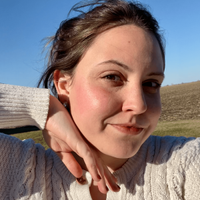10 Best Shaving Creams for Women That Help Prevent Ingrown Hairs
Say goodbye to nicks and bumps.
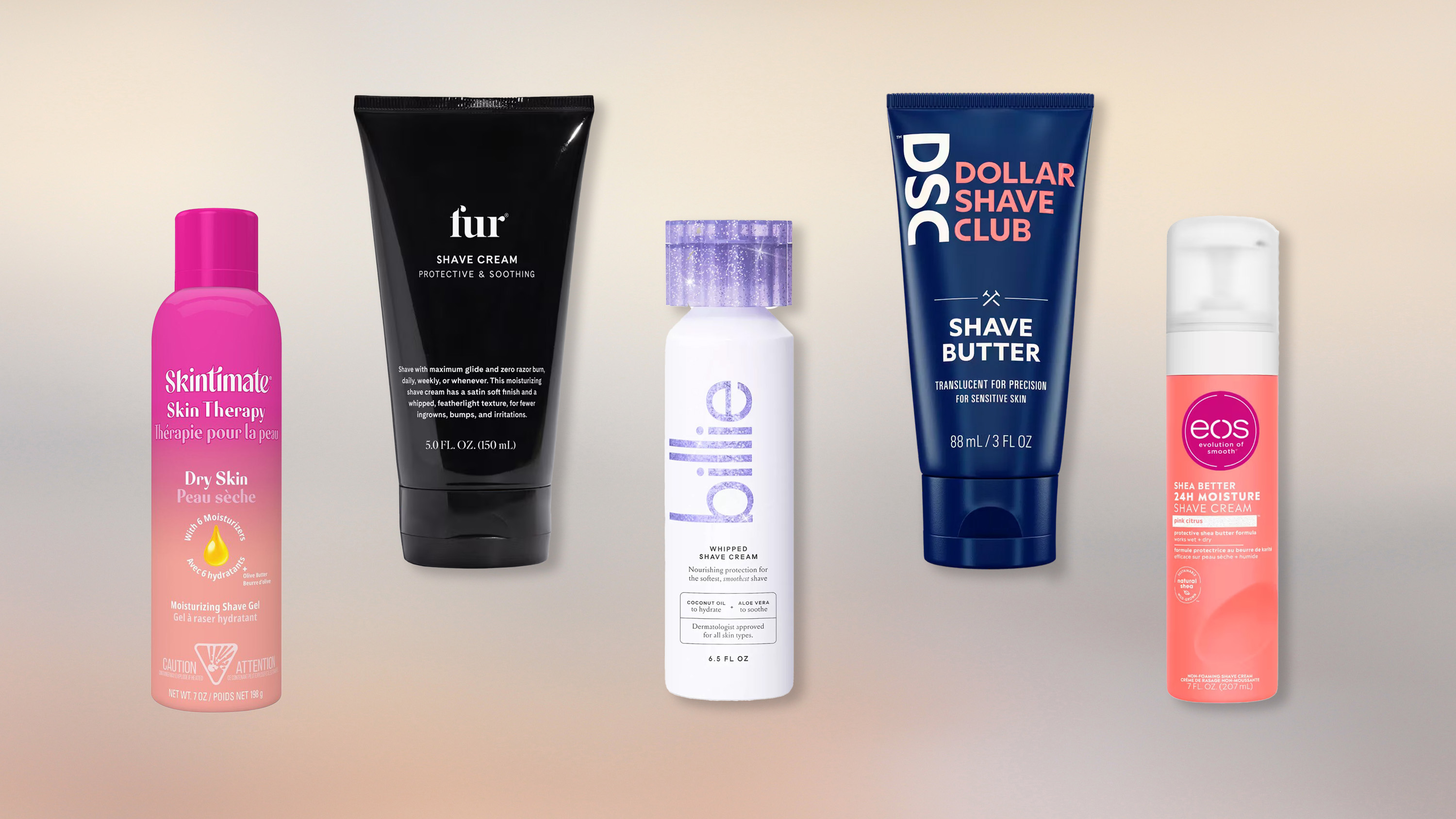
Removing your body hair is by no means necessary. However, if you shave your armpit and leg hair like me, having the right tools is the if-you-know-you-know secret to avoiding razor burn and ingrown hairs. I have one of the best electric razors and a bikini trimmer tucked away in my shower, but the unsung hero for my baby smooth shave is easily the best shaving cream for women.
There are options for everyone: drugstore picks and luxury splurges, formulas specifically designed for sensitive skin, and ones that smell so good, you'll be convinced your shower has transformed into a spa. Bonus: your skin will feel silkier than ever.
"A shaving cream or gel can help create a barrier or layer of protection between the blade and the skin, helping to reduce potential irritation, razor burn, and cuts," says board-certified dermatologist Dendy Engelman, M.D. FAAD. The right shaving cream can also boost skin hydration levels from the second you step out of the shower. (If you could touch my legs right now, you'd know exactly what I mean.)
To help you determine which shaving cream is best for you, I turned to dermatologists, cosmetic chemists, and shaving experts for their thoughts. Plus, find information on how to use shaving creams, if they expire, and why they're so helpful for your skin barrier, ahead.
The Best Shaving Creams
- The Best Shaving Cream Overall: Billie Whipped Shaving Cream
- The Best Shaving Cream for Your Bikini Area: FUR Shave Cream
- The Best Drugstore Shaving Cream: Skintimate Skin Therapy Dry Skin Women's Shave Gel
- The Best Shaving Cream for Travel: Dollar Shave Club Shave Butter
- The Best Shaving Cream for Dry Skin: EOS Shea Better 24H Moisture Shave Cream
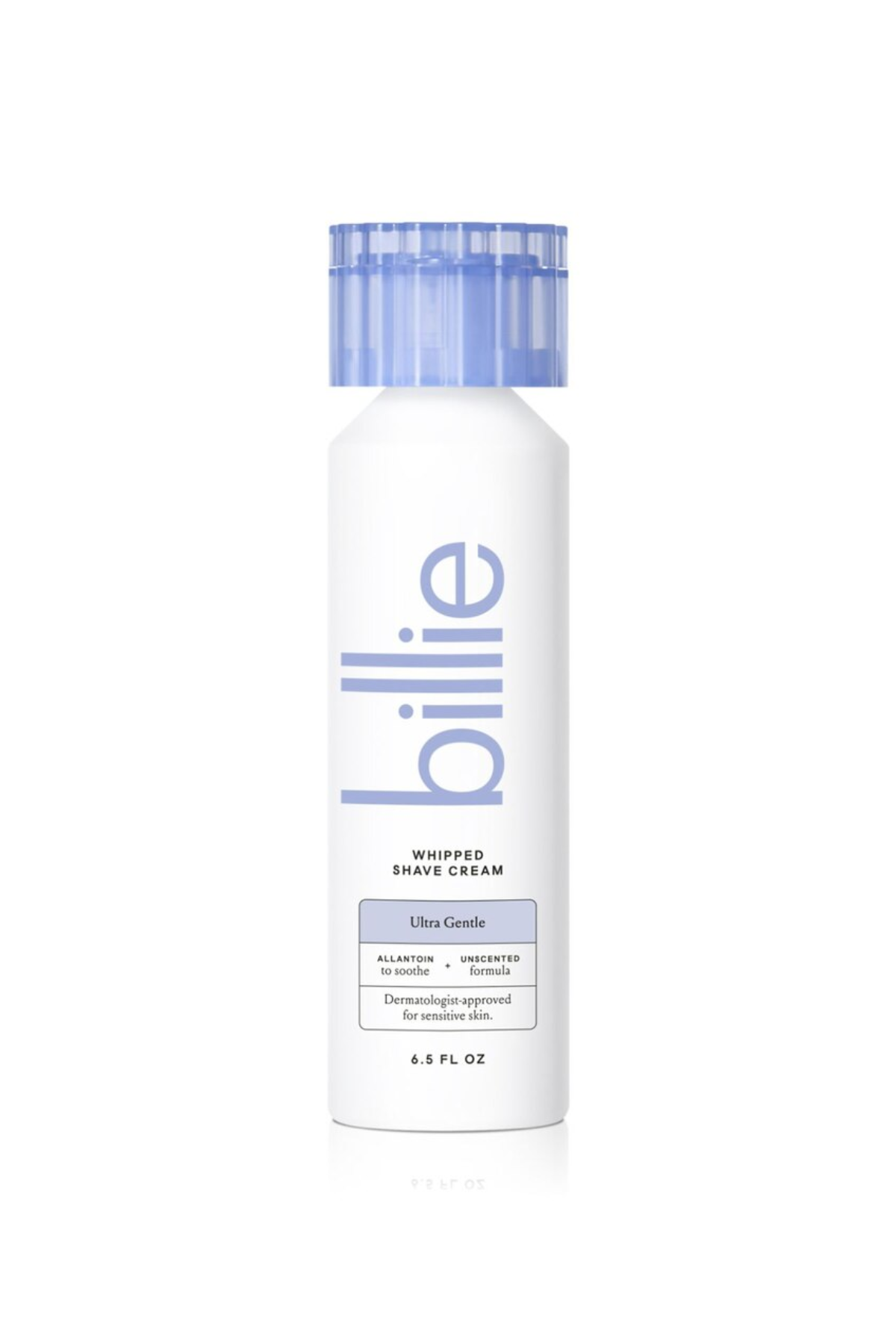
Priced at only $8, Billie's fan-favorite shaving cream comes in three different scents and a fragrance-free ultra-gentle version. The latter is Dr. Engelman's favorite. "It’s infused with moisturizing ingredients like coconut oil, shea butter, and aloe vera to protect the skin," she shares. "It’s also fragrance-free, so it’s safe for sensitive skin." Hero ingredients include allantoin, shea butter, coconut oil, sage, and aloe.
Type: Cream
Key Ingredients: Shea butter and coconut oil (moisturizing), sage and aloe vera (soothing)
Size: 6.5 fl oz
What We Love: Lightweight; Fragrance-free; Sensitive skin friendly
What We Don't: Some reviewers wish it lathered more
Review For MC: "I really appreciated the airy texture of this shave cream. I'd compare it to whipped marshmallow fluff for my legs. It transforms into a thick foam that spreads easily and easily glides across my skin. The best part is that my legs feel silky smooth right after I wash it off." — Brooke Knappenberger, Associate Commerce Editor
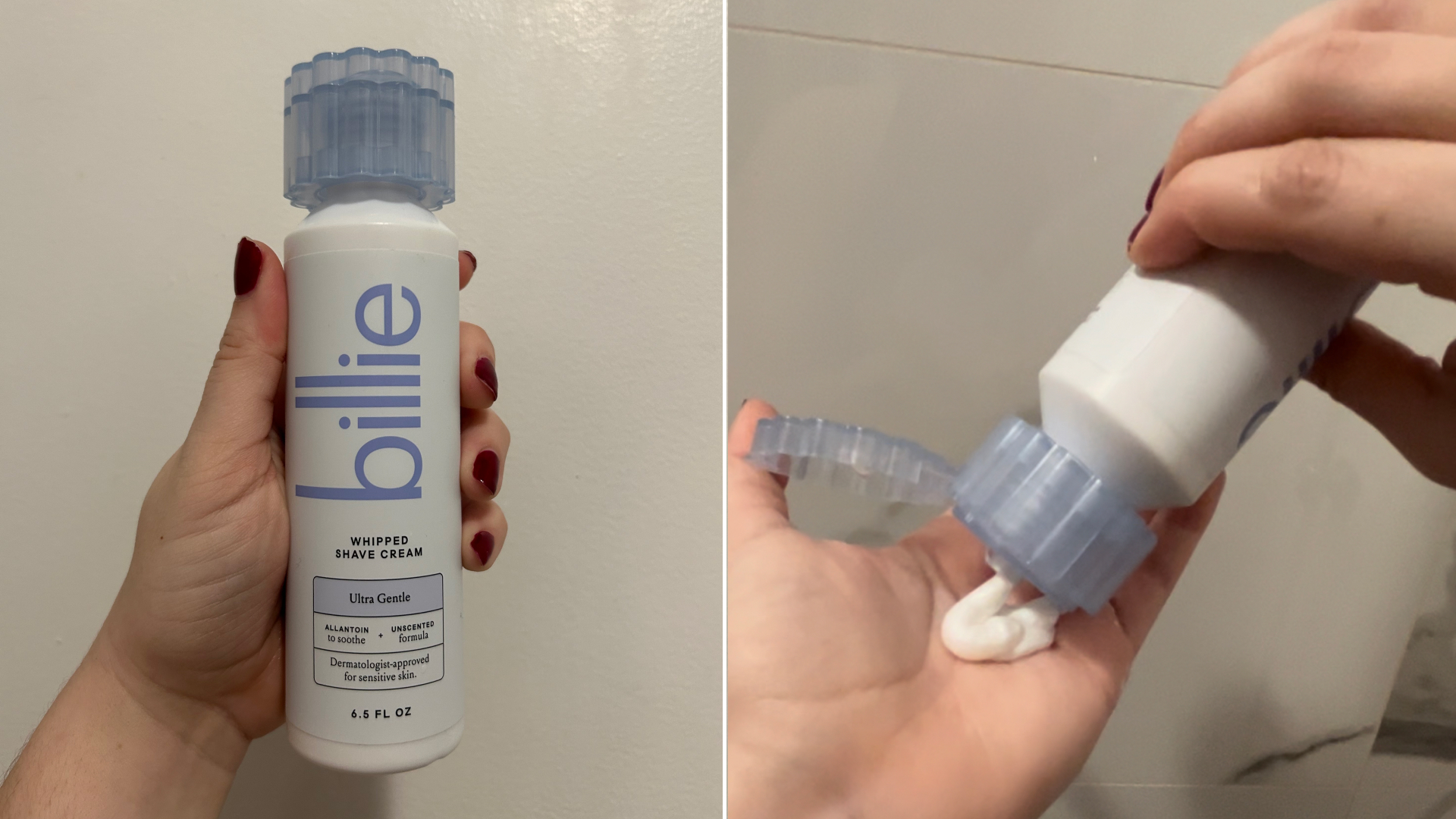
Brooke Knappenberger's pick for the best overall shaving cream.
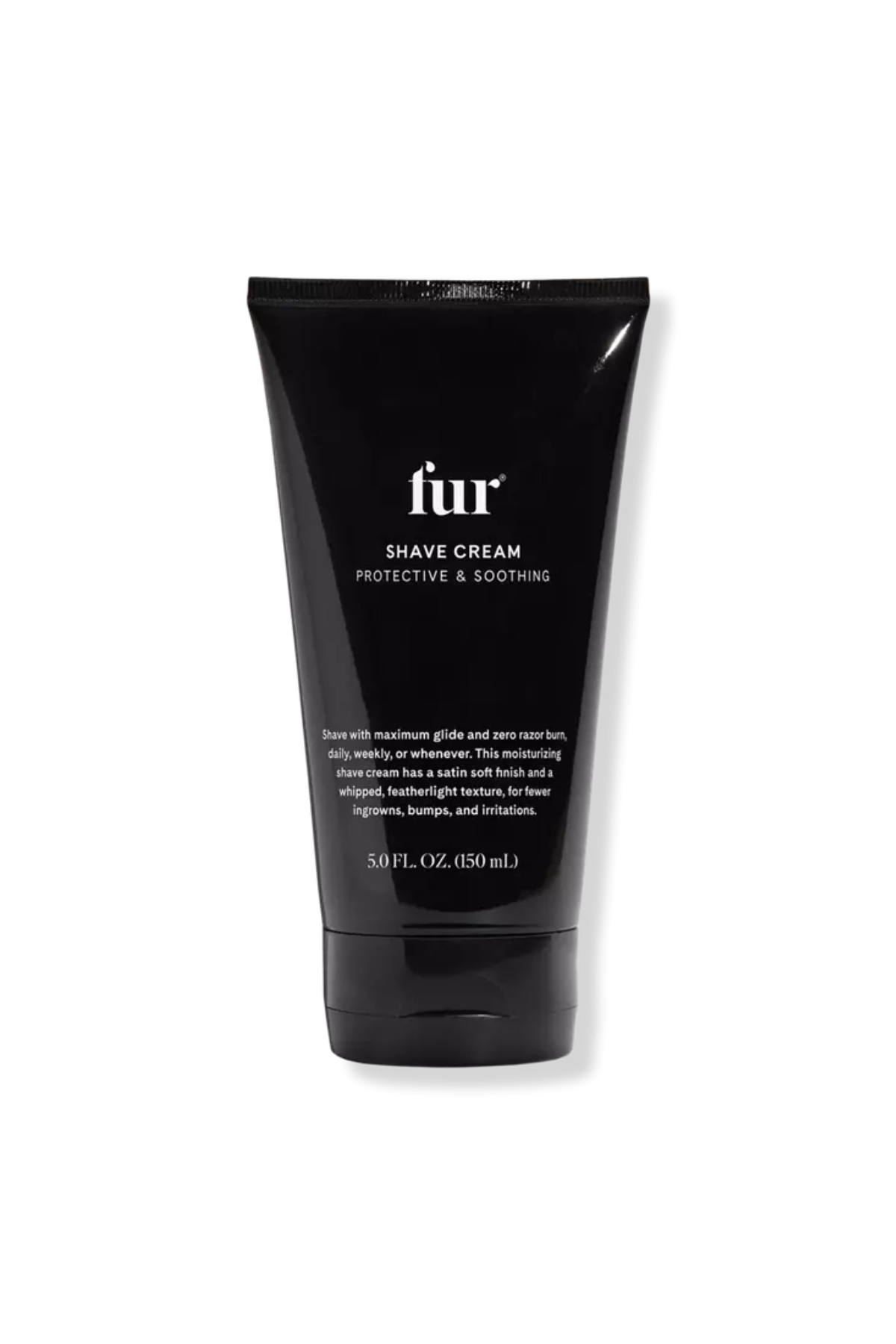
Free of parabens, phthalates, silicones, artificial colors, and fragrances, FUR's gynecologically-tested, made-for-your-bikini-line shave cream contains calming ingredients like aloe and marshmallow root extract. Because it doesn't foam, my razor can get incredibly close to my skin. I'm not the only one obsessed with this; 100 percent of people in a clinical trial said it fights bumps and irritation.
Type: Cream
Key Ingredients: Olive oil (moisturizing), aloe vera (soothing)
Size: 5 fl oz
What We Love: Silky; Tested by gynecologists; Can be used all over the body; Fragrance-free
What We Don't: More expensive than other options
Review For MC: "Fur's $32 price tag is difficult to justify for shaving cream, but leave it to me to justify the purchase. I tested it along my bikini line, notoriously the most annoying body part to shave. Lo and behold, I didn't experience any nicks, cuts, or razor burn while using this buttery cream. The fact that this pick is gynecologist-tested is a huge win in my book, too." — Brooke Knappenberger, Associate Commerce Editor
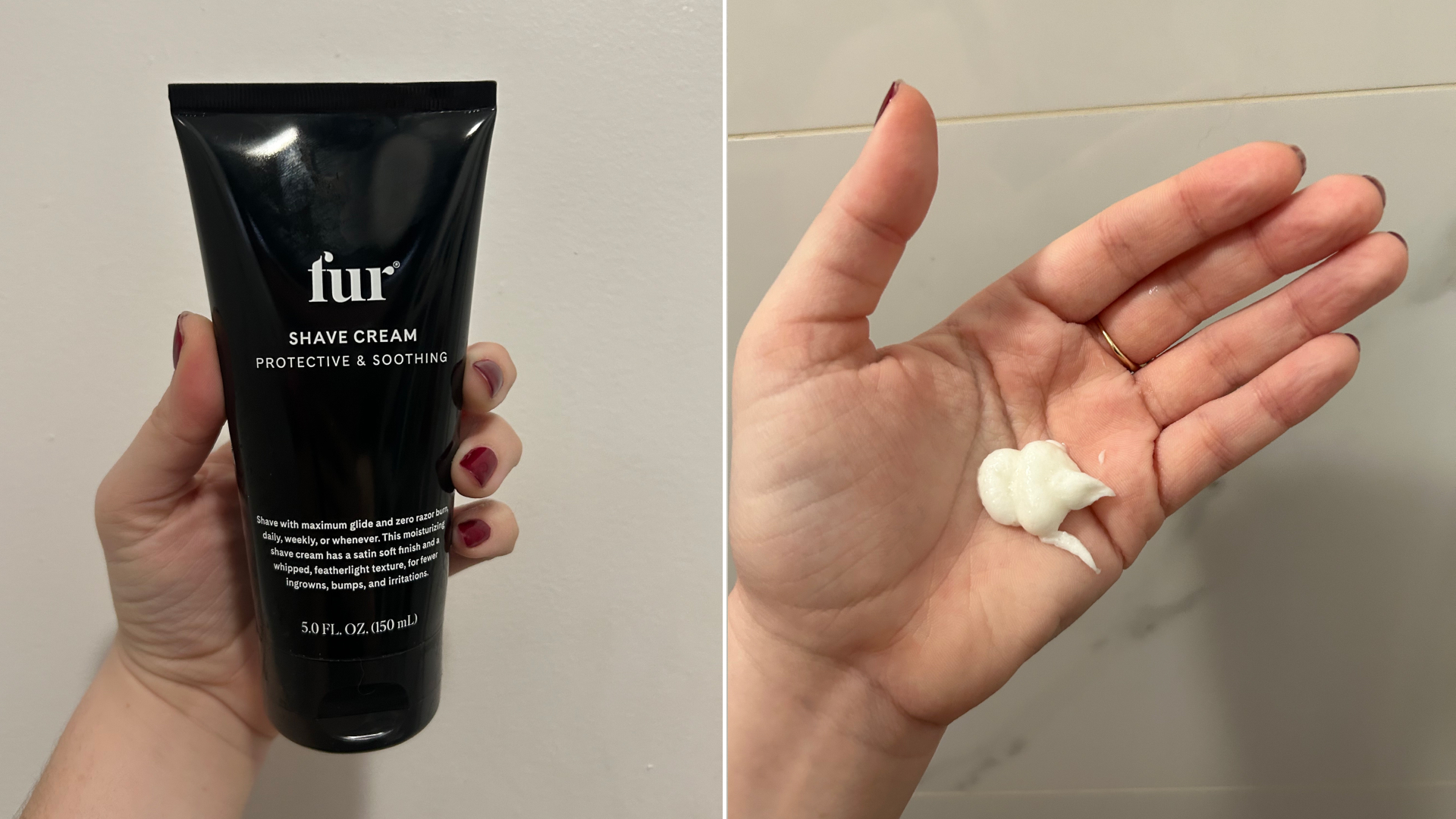
Brooke Knappenberger's pick for the best shaving cream for your bikini area.
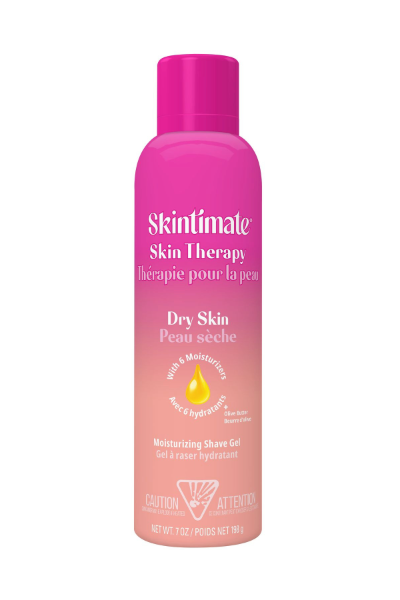
A classic at a fantastic value, this buy-it-in-bulk, raspberry-scented favorite from Skintimate boasts over 300 five-star reviews on Target's website. Tested by dermatologists and formulated with hydrating ingredients like lanolin, vitamin E, and olive butter, it transforms into a rich lather that creates a thin but effective barrier between skin and a razor.
Type: Gel
Key Ingredients: Vitamin E (smoothing), olive butter (moisturizing)
Size: 7 fl oz
What We Love: Great value; Smooth application
What We Don't: Some reviewers find the smell too strong
Review For MC: "I get a special type of excited when a find a drugstore bargain, which is exactly what I got with Skintimate. This product comes out of the bottle with a gel-like texture, but once I rub it onto my leg, it transforms into a rich, mousse-like cream. The tiniest spray covers nearly my entire thigh, so a little goes a long way here. My razor was able to glide easily enough to get a smooth shave. The only issue: there's a bit of an off-putting chemical scent." — Brooke Knappenberger, Associate Commerce Editor
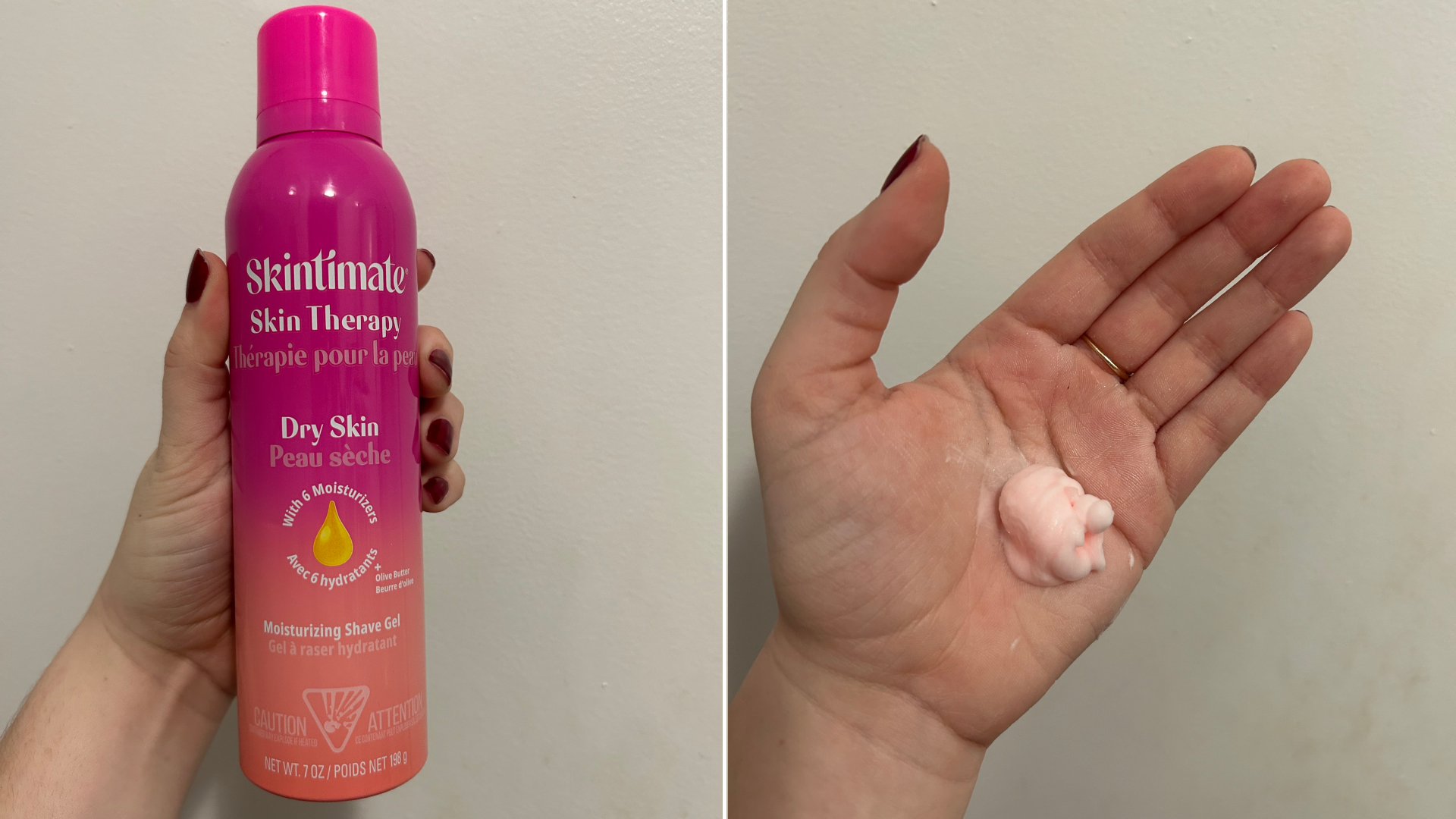
Brooke Knappenberger's pick for the best drugstore shaving cream.
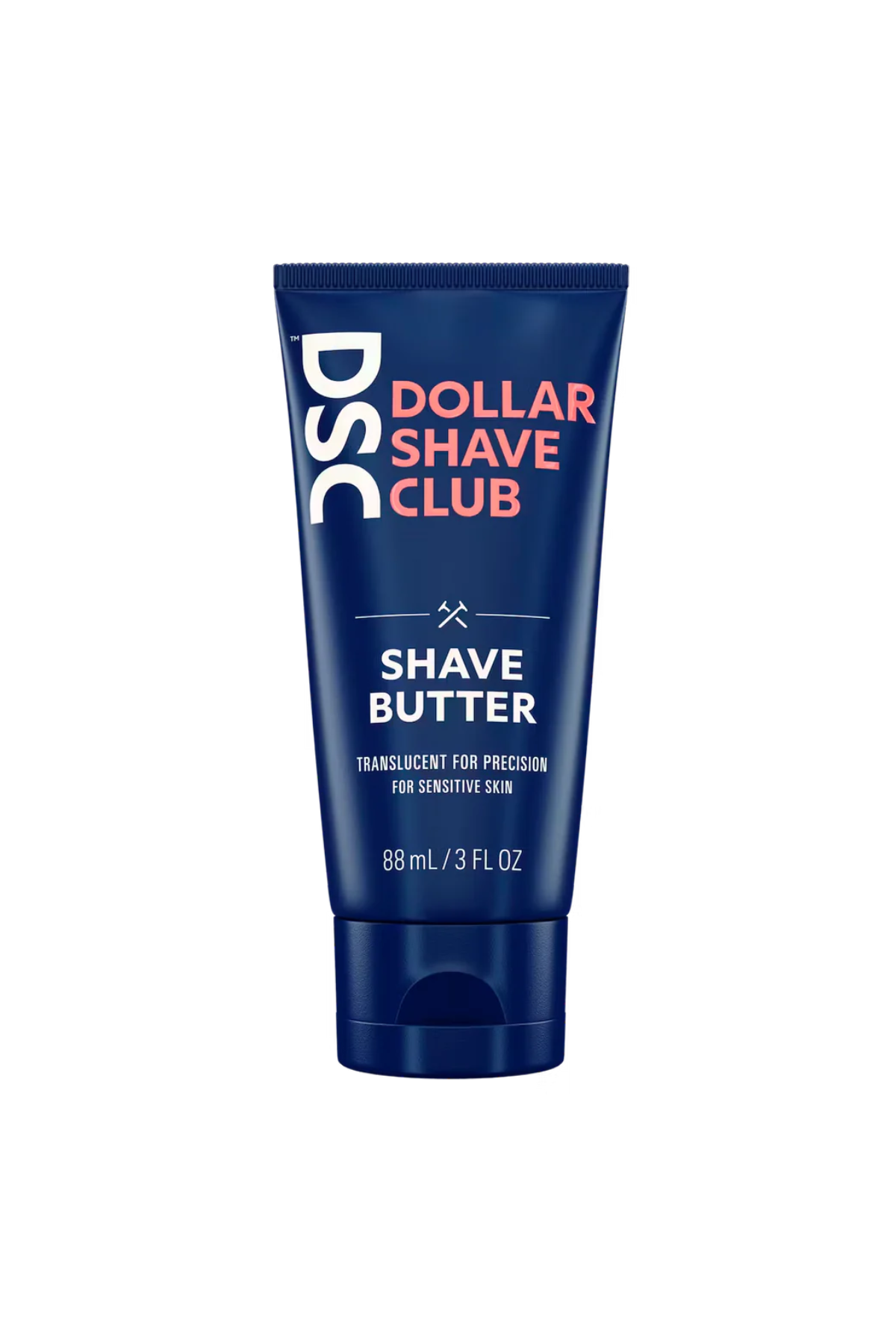
Dollar Shave Club's Shave Butter is available in three sizes—six, three, and one fluid ounce—so that you can always have one in your home shower, one in your carry-on, and one available for friends to take home and test out. (Trust me, they'll want it.) "I steal this from my boyfriend constantly; that's how amazing it is," shares Fashion E-Commerce Editor Julia Marzovilla. "It feels like a thick body butter and leaves my skin feeling so soft and smooth that I (almost) don't need to apply body lotion after."
Type: Butter
Key Ingredients: Glycerin (moisturizing), macadamia seed oil (calming), papaya fruit extract (softening)
Size: 1, 3, or 6 fl oz
What We Love: Editor-recommended; Sized for travel; Translucent so you can see where you're shaving; Softening
What We Don't: None found
Review For MC: "With a jelly-like texture, this shave butter applies very thin, making it a dream to spread across the skin. It gave such a close shave, that my legs maintained a soft, smooth texture for—I kid you not—three whole days. I'm a bit unsure of how I felt about its translucency—I found myself going over spots more so than I would have a traditional shaving cream. However, it definitely beats other shaving creams in the hydration department." — Brooke Knappenberger, Associate Commerce Editor
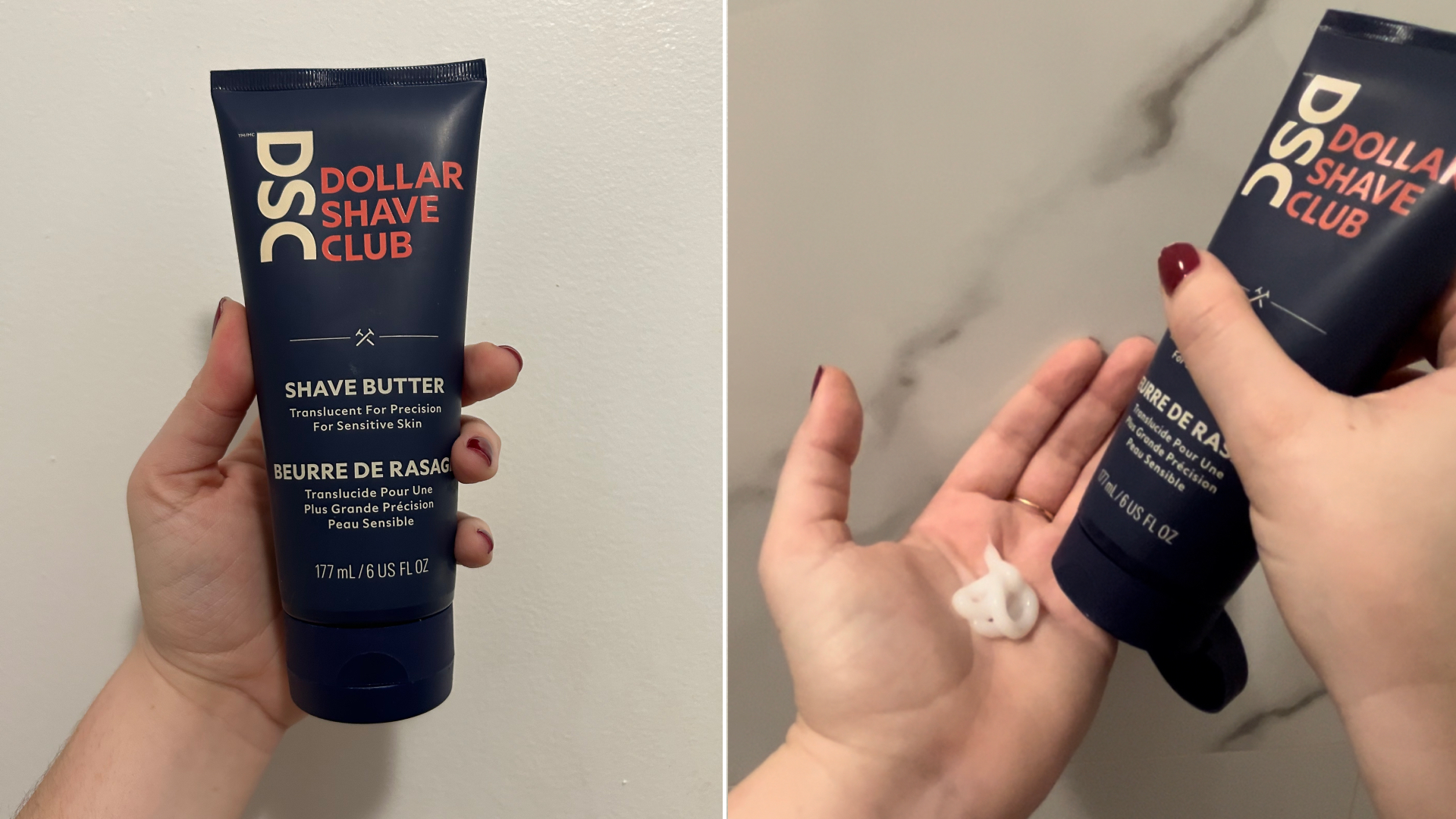
Brooke Knappenberger's pick for the best shaving cream for travel.
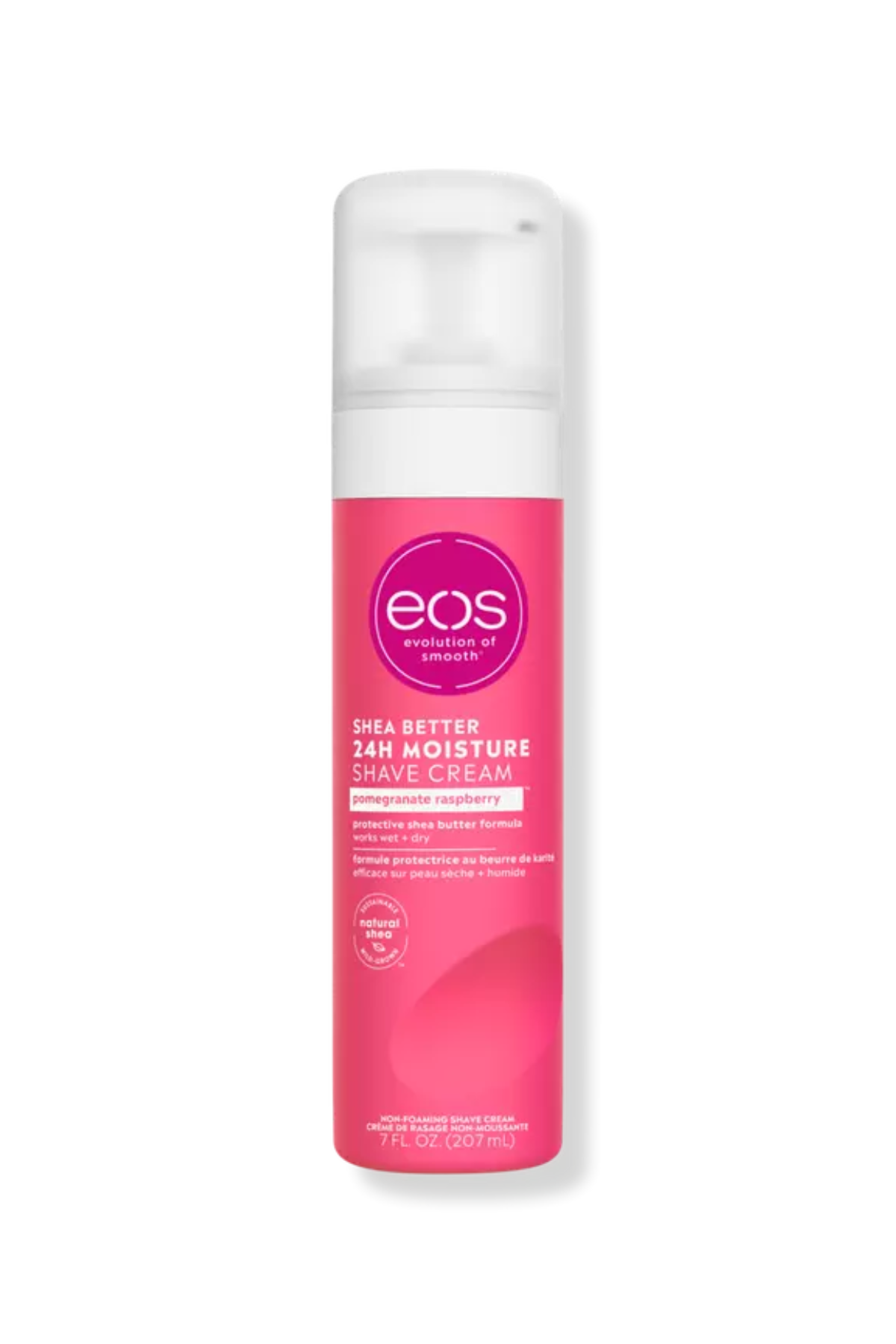
This affordable shaving cream (it's just six dollars!!) is focused on deep hydration. It's quickly become a winter skin staple with ingredients like shea oil, shea butter, and aloe. Available in four scents—lavender, vanilla, pomegranate raspberry, and citrus—there's something for every fragrance preference. Vanilla is my personal go-to; it's like a warm hug in the shower.
Type: Cream
Key Ingredients: Shea oil and shea butter (moisturizing), aloe (soothing)
Size: 7 fl oz
What We Love: Dermatologist-tested; Hypoallergenic; You can leave it on as an in-shower lotion
What We Don't: Some say the smell is too strong
Review For MC: "If I didn't know any better, I would think this was a body lotion. The texture feels exactly like a creamy moisturizer. Here's the catch: I had to let a thin layer sit for a few minutes before shaving. Despite twiddling my thumbs for a few minutes in the shower, the end result was glowing, hydrated skin. As someone who hates applying lotion, this shaving cream is my new lazy girl hack for moisturizing. I also found the lavender scent so soothing." — Brooke Knappenberger, Associate Commerce Editor
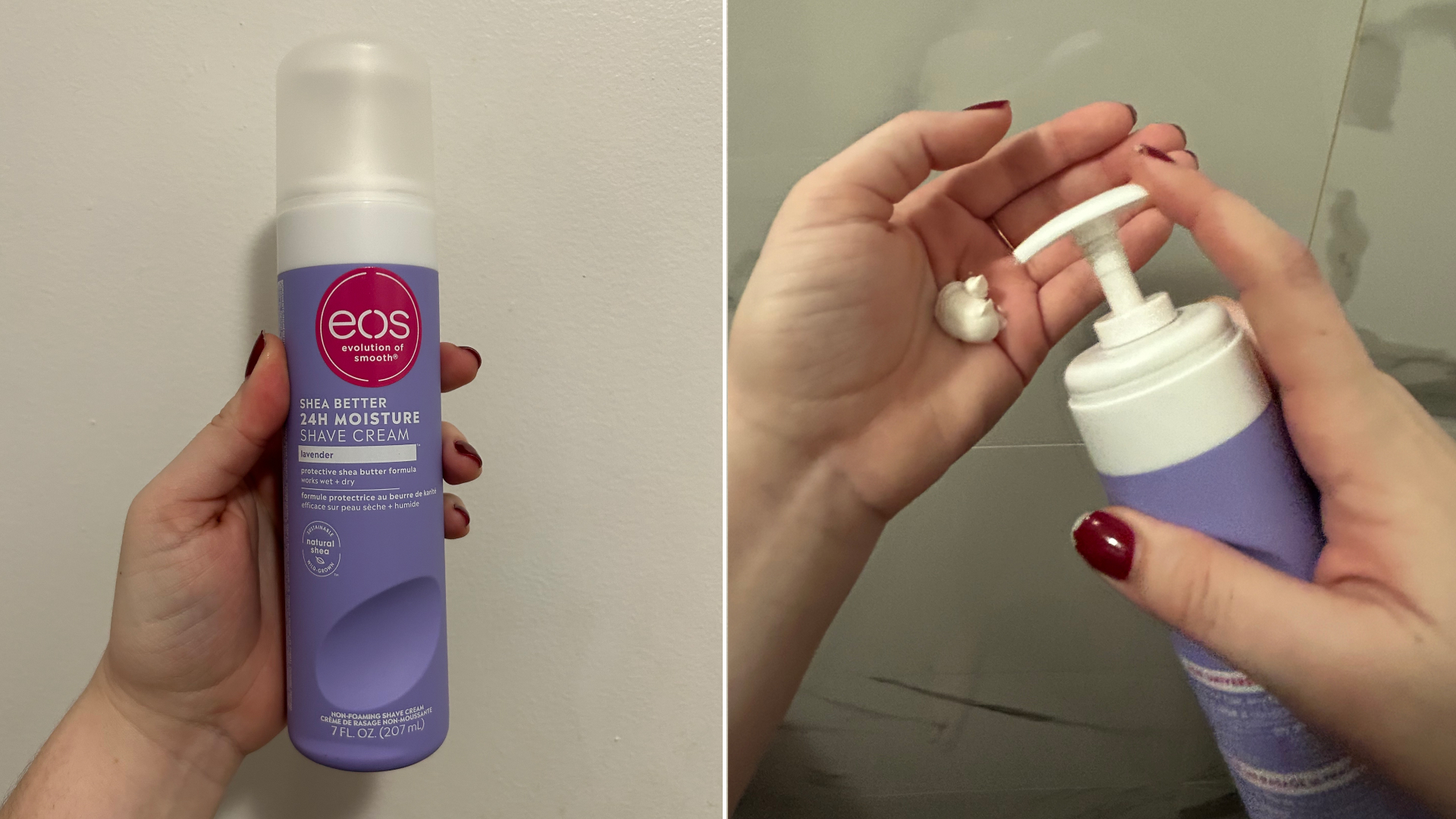
Brooke Knappenberger's pick for the best shaving cream for dry skin.
Other Shaving Creams I Love
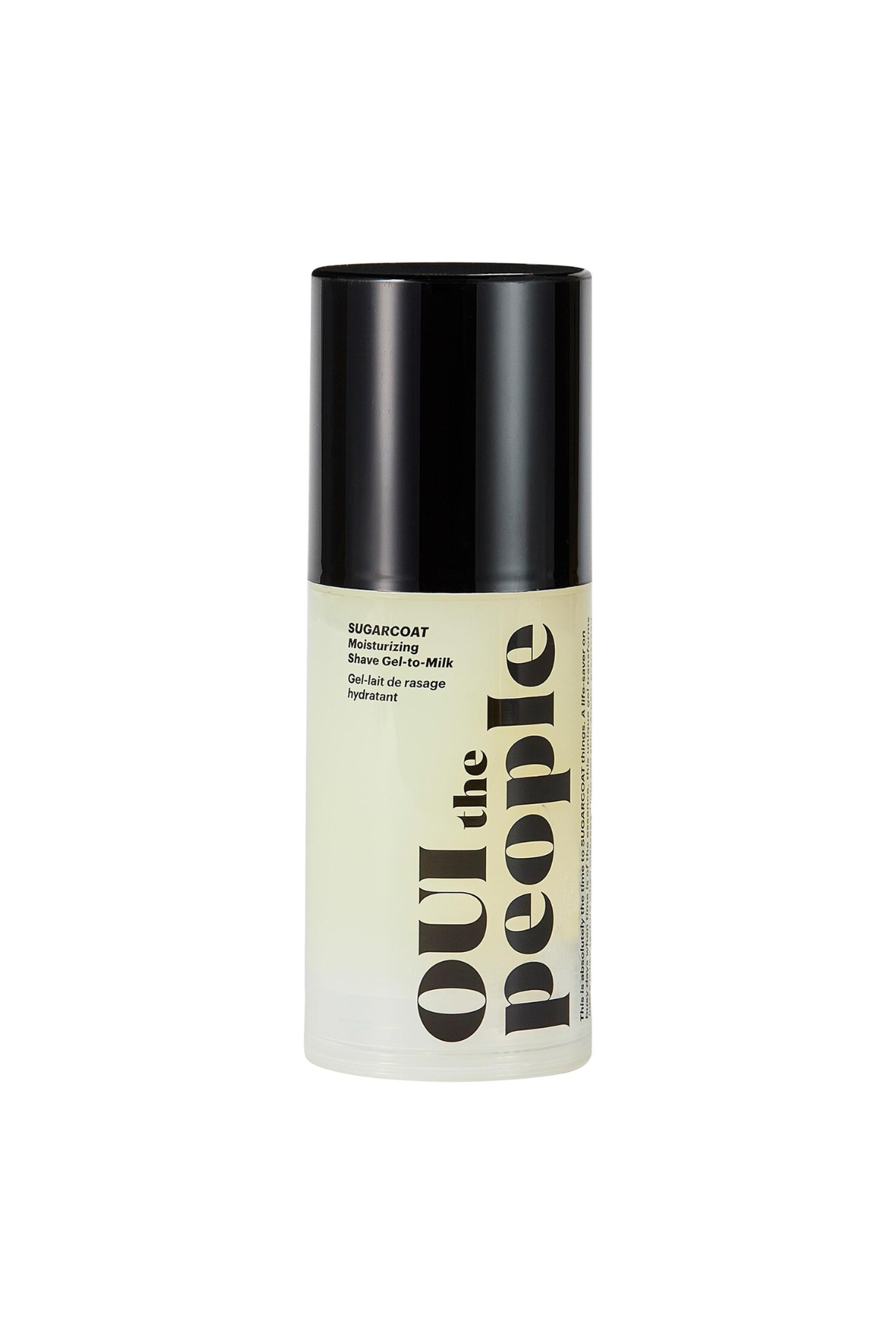
Anyone who loves a lightweight, gel-to-milky texture needs this shave gel in their rotation. It’s built for summer days when a lotion or cream texture feels too heavy, but honestly, it's perfect for any time of the year when you need your razor to glide along your skin. The ingredients are equally thoughtful, with hints of dandelion root extract and botanical oils that soothe and condition all skin types.
Type: Gel
Key Ingredients: Marula oil (softening and protecting), dandelion seed oil (soothing and conditioning), vitamin C (brightening)
Size: 5 fl oz
What We Love: Editor-recommended; Contains skin-loving ingredients
What We Don't: More expensive than other options
Customer Review: "I started using this during shelter in place. This makes shaving feel like a part of my self-care ritual. You only have to use a very small amount, zero shaving burn, and it smells amazing. The price may seem steep, but it lasts longer and does a better job than other shaving creams." — Oui The People
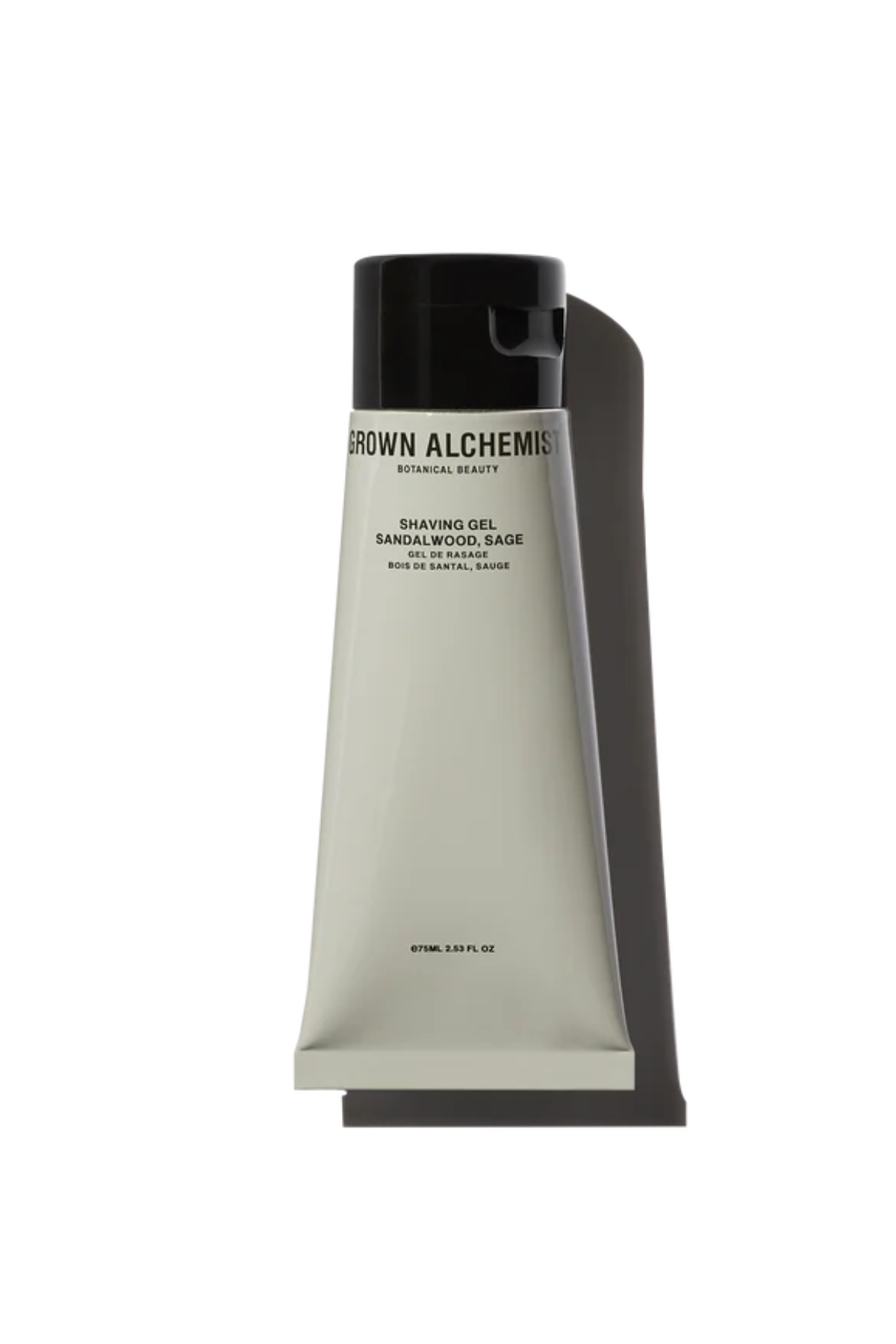
The Equinox-housed brand is worth all the hype. This shaving gel is formulated to soften and lift the hair follicle so your razor can glide and grip hair in one pass. Sandalwood, coriander seed oil, and sage calm the skin, while bioactive tripeptides to protect it from free radical damage.
Type: Gel
Key Ingredients: Sandalwood and coriander seed oil (soothing)
Size: 2.5 fl oz
What We Love: Lovely smell; Softening
What We Don't: More expensive than other options
Customer Review: "Gives the smoothest shave of any jell I’ve used and doesn’t dry out skin. A bit pricey for me but worth the extra cost." — Amazon
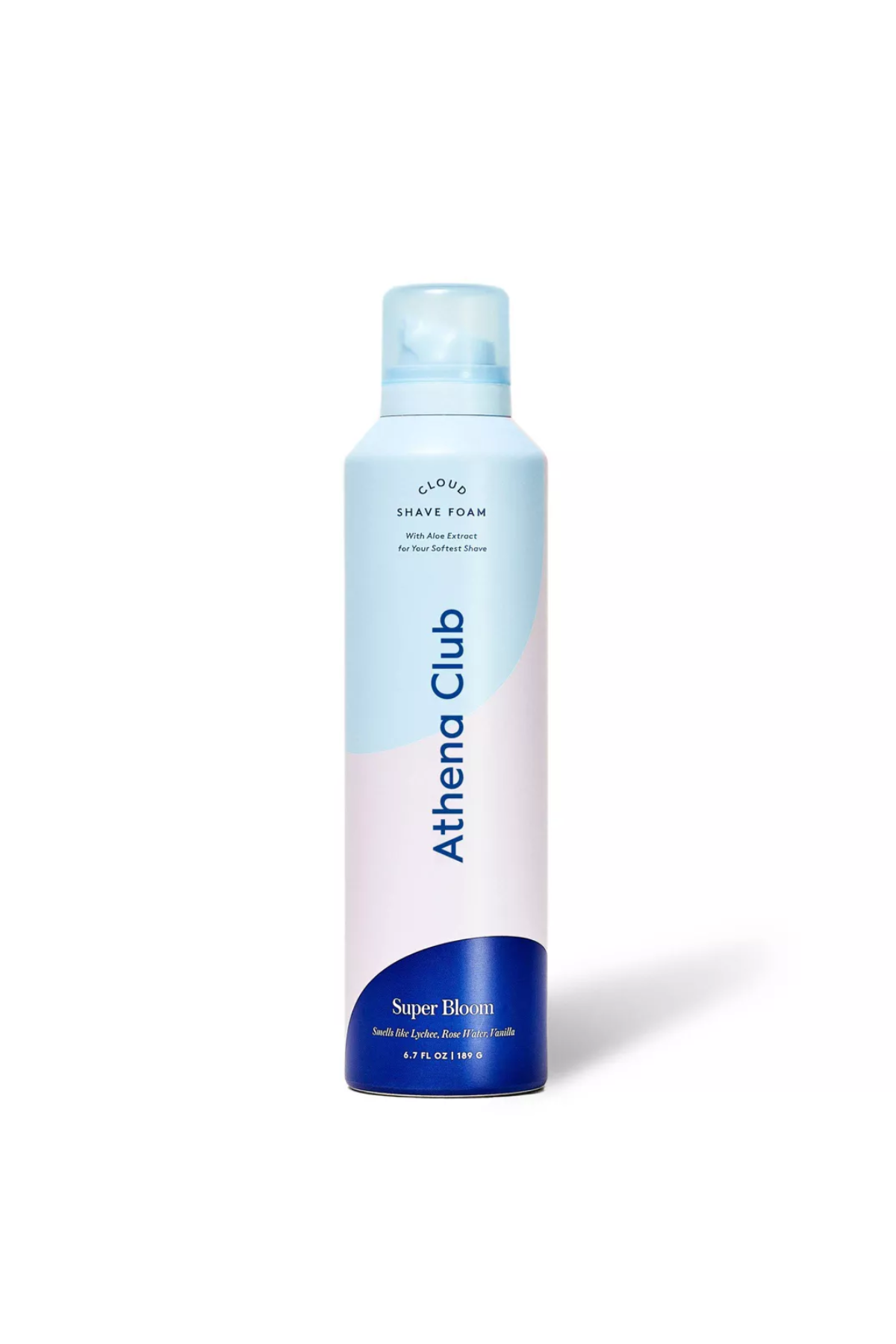
Marzovilla calls the consistency of this affordable shaving foam "downright heavenly," noting that its thickness lets it cover the skin in one easy layer. "It leaves the skin on my legs feeling so soft and has majorly helped me not miss any areas when I'm shaving," adds the editor. "It's one of the only products that I actually keep backups of in my bathroom. Not that I even need to re-purchase it—a little goes such a long way!"
Type: Cream to foam
Key Ingredients: Aloe leaf extract and oat extract (soothing)
Size: 6.7 fl oz
What We Love: Editor-approved; Contains calming ingredients like aloe and oat; Top-rated
What We Don't: Some reviewers find the floral scent too strong
Customer Review: "This cloud shave foam, paired with my Athena Club razor, has completely changed my legs from bumpy and itchy to smooth and sleek! I’m obsessed and never going back to anything else for shaving my legs." — Target
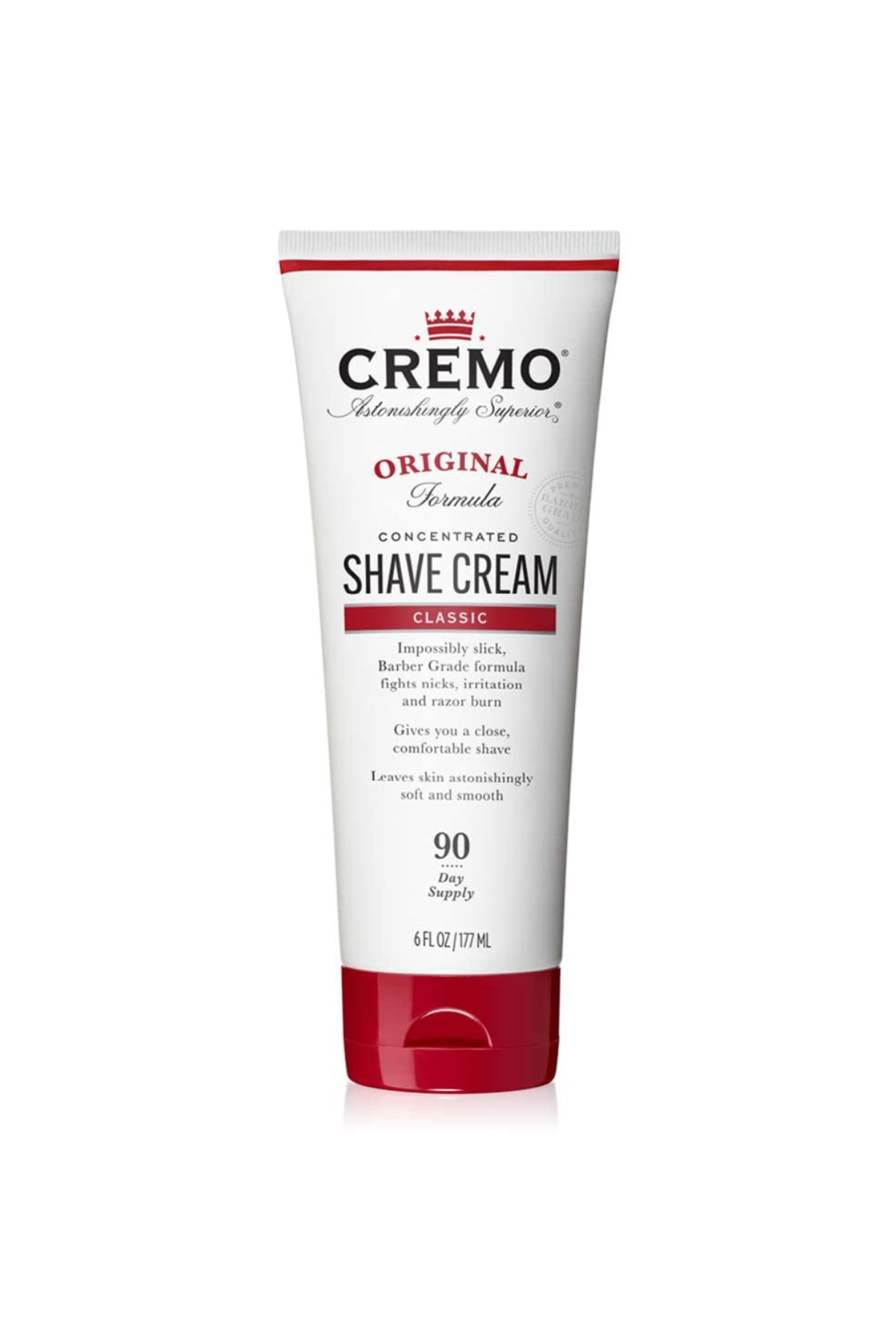
If you're looking to shave with a safety razor (these are razors with one replaceable, sharp, double-edged blade that provides an exceptionally close shave), the general consensus is to stick with a classic. The "barber-grade" Cremo comes highly recommended by safety razor enthusiasts. Available in several scents and a sensitive formula, your favorite razor and Cremo are easy to match.
Type: Cream
Key Ingredients: Aloe leaf juice (soothing), calendula flower extract (calming), olive leaf extract (moisturizing)
Size: 6 fl oz
What We Love: A classic; Slick texture; Subtle citrus scent
What We Don't: Some reviewers find the cream too thick
Customer Review: "Thought I would try this and wow was I surprised! I will never shave without it. Smooth as silk with no razor burn! A small amount the size of an almond is all you need. Buy it!" — Amazon
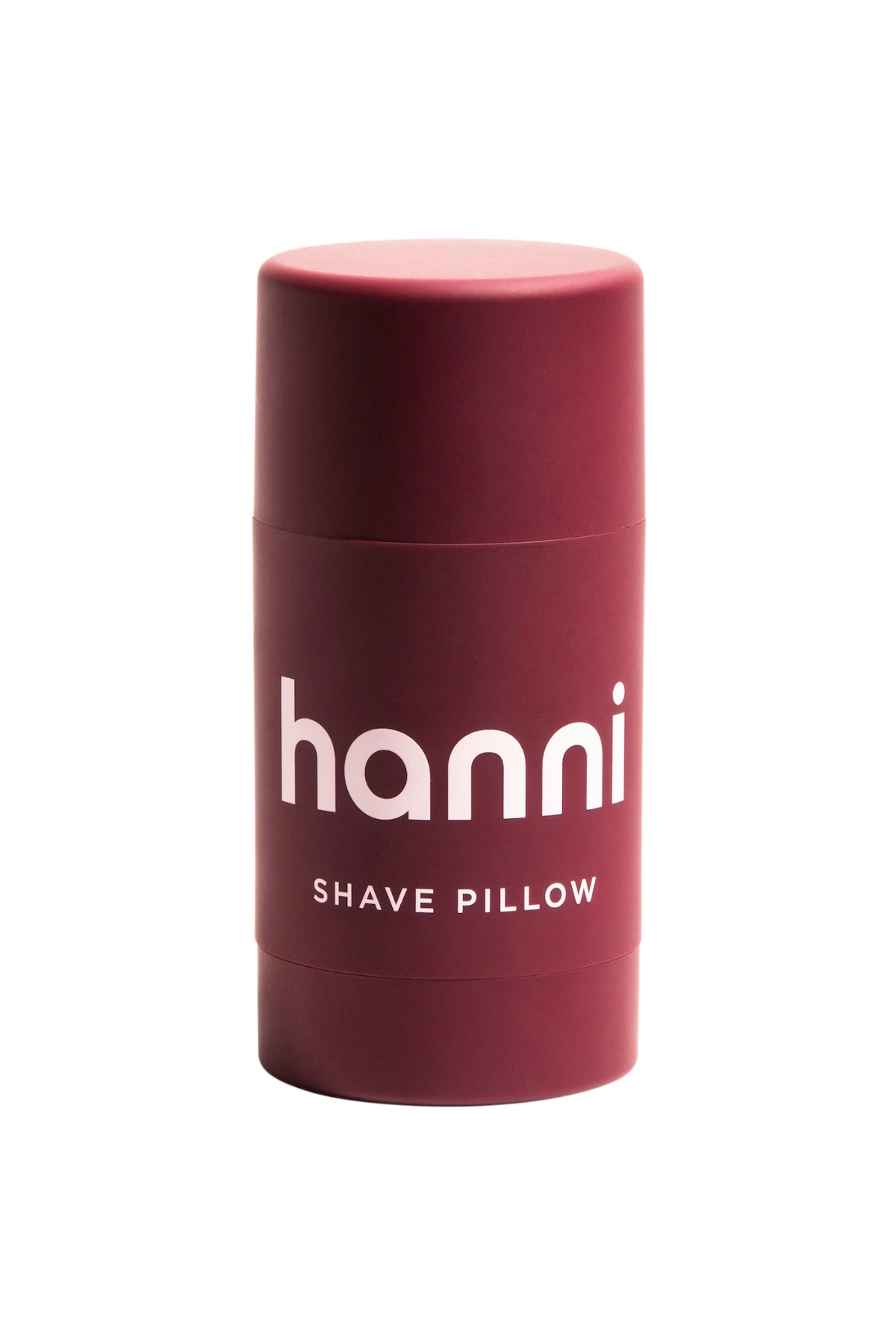
Who can say no to a pink weighted razor, let alone a shaving cream that you can use with or without water and as a moisturizer? Not me. Luckily, Hanni sells both. Shave Pillow, which comes in a unique stick format, allows what one reviewer calls "the closest shave of my life with no cuts or ingrowns." It's also mess-free and features ingredients like adaptogenic mushrooms to soothe skin and cactus water to moisturize.
Type: Gel stick
Key Ingredients: Adaptogenic mushrooms (soothing and protecting), cactus water and glycerin (moisturizing)
Size: 3 oz
What We Love: Mess-free; Travel-friendly; Multi-use
What We Don't: More expensive than other options
Customer Review: "This is amazing! It goes with my hanni razor perfectly! I put it on my legs (avoiding the water) and it works amazingly! Shaving cream has never worked for me, so this is a life saver!" — Sephora
What to Look for in a Shaving Cream
- Formula
When shave creams were discussed decades ago, most people automatically thought of a cream-based substance. These days, the textures are varied. You'll find gels, oils, and gel-to-milk types on the market, all fortified with good-for-you ingredients (like aloe and marula oil) that aid in skin protection.
According to cosmetic chemist Ginger King, today's shaving cream formulas work more like conditioner than shampoo; they never need to foam to do their job. "The cream [or gel] will help to provide a uniform surface by coating skin and hair so that when the razor glides over, the hair can be lifted without scraping skin," she says.
- Consistency
Some shaving creams are foamy and thick. Others are more gel or paste-like and are packaged in a tube, jar, or non-aerosol container. When deciding on consistency, it's helpful to consider the shaving experience. Do you prefer to whip the gel into a lather and smooth it over your body? Or do you want a gel-like formula that allows you to see the hairs as you shave?
Marzovilla's favorite shaving cream is super thick, almost blanket-like, and comforts her skin. On the other hand, I prefer a transparent, lightweight gel formula that isn't too messy in the shower. Both textures get the job done, offering a close shave with minimal irritation.
- Ingredients
Dr. Engelman explains that artificial fragrances in shaving creams can cause allergic reactions or irritation, so there's no formula-impacting reason to keep them around. "Phthalates can also be potentially harmful to the body by disrupting hormones, and they can also harm the environment," she shares. "I recommend looking for a cream that is fragrance-free and hypoallergenic."
Benjamin Knight Fuchs, R. Ph, a cosmetic chemist, adds that you should look for shaving creams "that contain topical nutrients and minimal ingredient decks."
Do I Need to Use a Shaving Cream?
While you don't technically need to use shaving cream, it can make your hair removal routine much smoother—literally and figuratively. "Shaving imposes constant stress on skin that can cause it to feel dry. There is also the potential to nick, cut, or irritate your skin when shaving. For these reasons, it is important to ensure skin is cared for in the shaving process," shares Helen Sung, Head of Global Product Development and Research at Flamingo. "A shave prep is key because it provides a layer of protection between the skin and the blade so that your razor is able to glide across skin to remove hair without issue."
Even if you're applying a body wash or bar of soap before going to town with your razor, your skin will have less friction, meaning fewer nicks and bumps.
How Do I Apply Shaving Cream?
Fuchs shares that a shaving cream's slickness is achieved by including fatty acids, emollients, and silicone derivatives. Add a little water (if the formula calls for it) and apply a nice layer to the area you're looking to shave to get these ingredients to work.
For the actual shaving process, Dr. Engelman says you should go in one direction with your (new and sharp) razor, which will reduce the likelihood of ingrown hairs, razor bumps, and irritation overall.
"If you shave in the direction your hair grows, you are also less likely to irritate your skin because shaving against the hair tugs on your hair follicles, which increases your risk of irritation," she says. "Do not forget to hydrate the skin with an oil and moisturizer post-shave to lock in moisture."
Can Shaving Creams Expire?
Like any other beauty product, shaving creams have expiration dates, especially if they contain water in their ingredient list. The typical expiration date is two years from when the product was formulated.
However, Fuchs says using them a little longer is probably fine. "There is nothing in most shaving creams that will expire, and typically, these kinds of products are effective indefinitely," he shares.
Why Trust Marie Claire
Marie Claire is an authority on hair removal, having covered topics spanning every hair removal method, from laser hair removal devices to the best-ever razors to deep dives on how to shave your bikini line and the difference between sugaring versus waxing.
We also tapped four experts—a board-certified dermatologist, Flamingo's Head of Global Product Development and Research, and two cosmetic chemists—to help assemble a list of the best, safest shaving creams for women.
How We Tested
For this story, we sourced editor and expert favorites and tested over 10 shaving creams. We evaluated each shaving cream based on feel and texture, how well it lathered and distributed, how close of a shave they allowed, and how our skin felt after shaving.
Meet the Experts
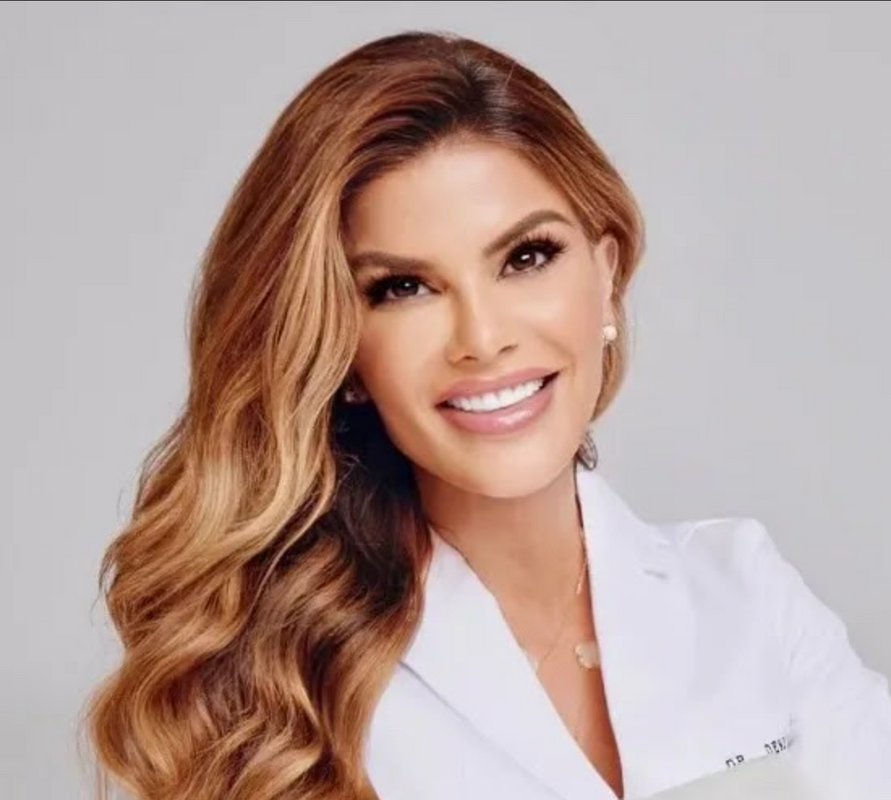
Dr. Dendy Engelman is a board certified dermatologic surgeon at Shafer Clinic Fifth Avenue. Dr. Engelman earned the Presidential Scholar award while a medical student at the Medical University of South Carolina. She was also awarded the Humanism in Medicine Scholarship primarily for establishing and running a free medical care clinic in Charleston and in Haiti.
Following medical school, Dr. Engelman completed her internship in Internal Medicine at the Mount Sinai Medical Center in Manhattan. In addition, Dr. Engelman completed a one-year fellowship in Mohs and dermatologic surgery, lasers, liposuction and vein treatments. She also has extensive training and experience in cosmetic dermatology—including neurotoxins, injectable fillers, and chemical peels.
Most recently, Dr. Engelman was appointed Director of Dermatologic Surgery at New York Medical College where she oversees the training of future Mohs surgeons and dermatologists. She is a fellow of the American Academy of Dermatology, American Society of Dermatologic Surgery and American College of Mohs Surgery.
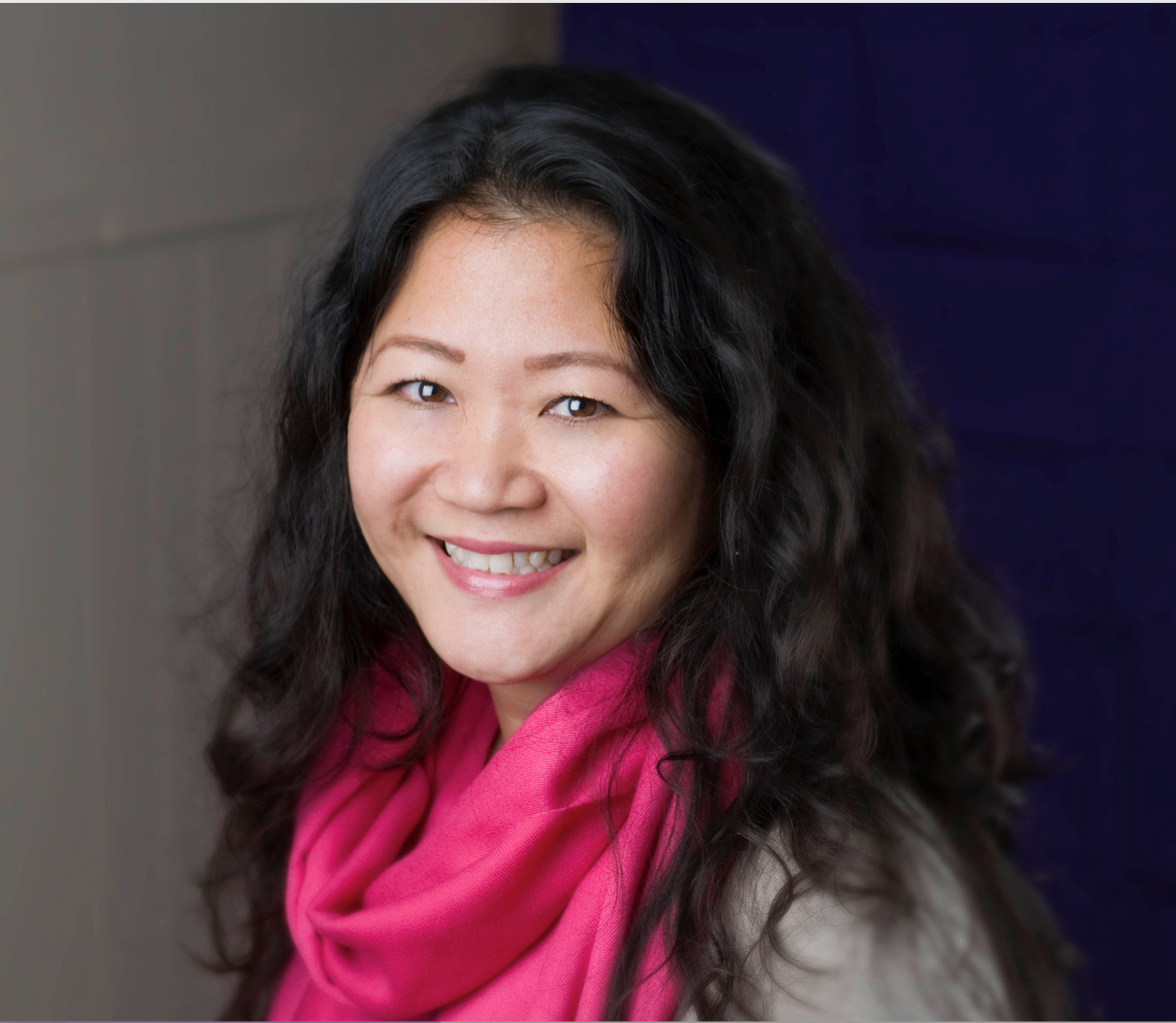
Helen Sung holds a BS in Biochemistry from SUNY Stonybrook and a MBA from Dowling College.
She is currently the Head of Soft Product Innovation at Harry's Inc and led R&D for Flamingo. Helen joined the Harry's R&D team in 2017 when Flamingo first launched, and oversaw the product portfolio. Helen started her career in beauty as a formulation chemist, then moved into various Product Development roles at Estee Lauder and L'Oreal, where she focused on skincare and dermatologist solutions.
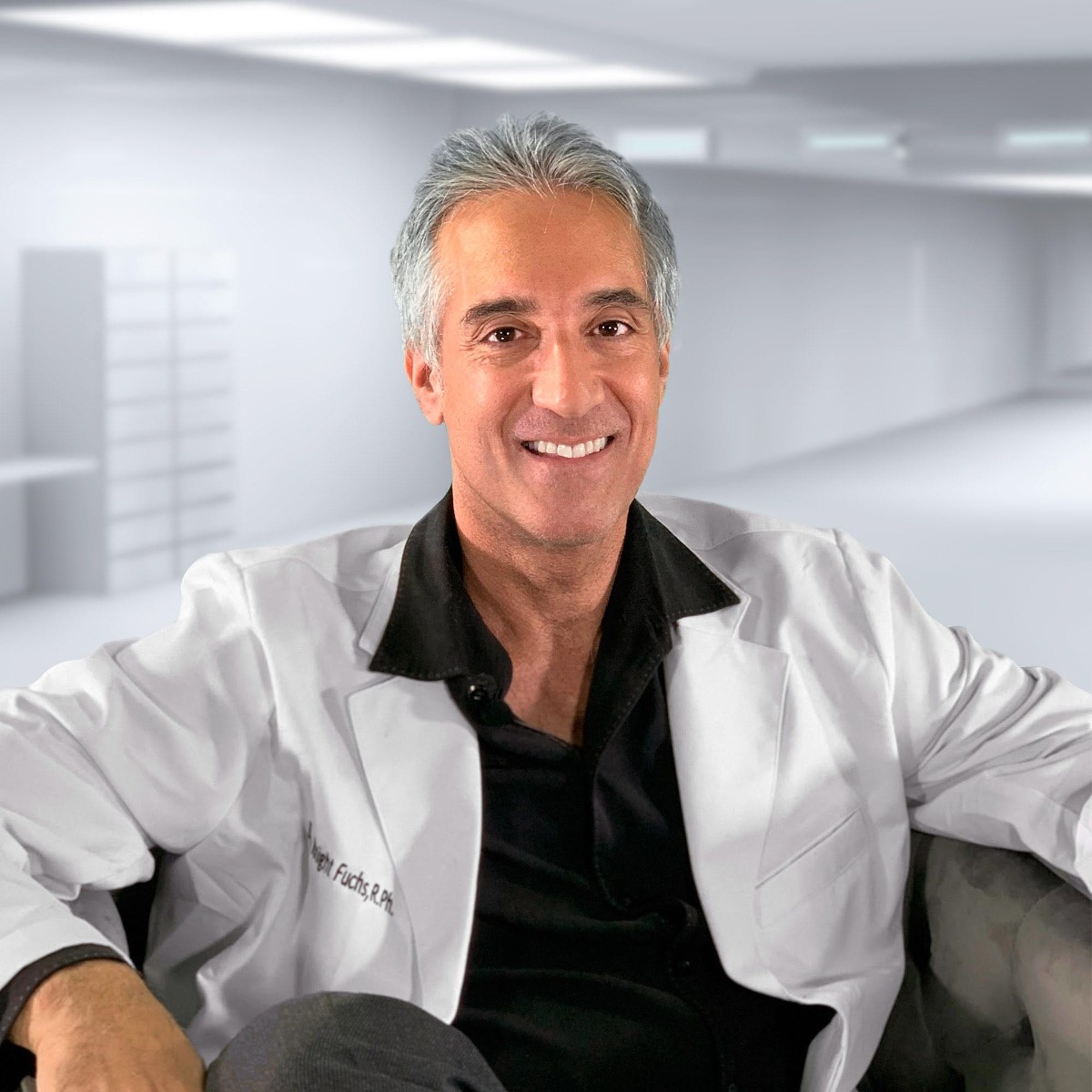
Benjamin Knight Fuchs is a skin care chemist, registered pharmacist, nutritionist, and founder of Truth Treatments. For the past 35 years, he's been developing pharmacy-potent skin health products for estheticians, dermatologists, plastic surgeons, and his own customers.

Ginger King is a cosmetic chemist who has been passionately creating beauty products from concept to finish since 1995. She is well versed in innovative concepts, creative product formulation, advanced technology applications, ergonomic package development and impactful competitive analysis. Ginger has developed over hundreds of products from hair care to skin care, and sun care to color cosmetics. Her claim to fame products include the revolutionary first to market Joico ICE SPIKER, water resistant hair glue, Freeze 24.7 Ice Shield, SPF 15 face wash and Avon Advance Techniques Color Protection series.
Get exclusive access to fashion and beauty trends, hot-off-the-press celebrity news, and more.
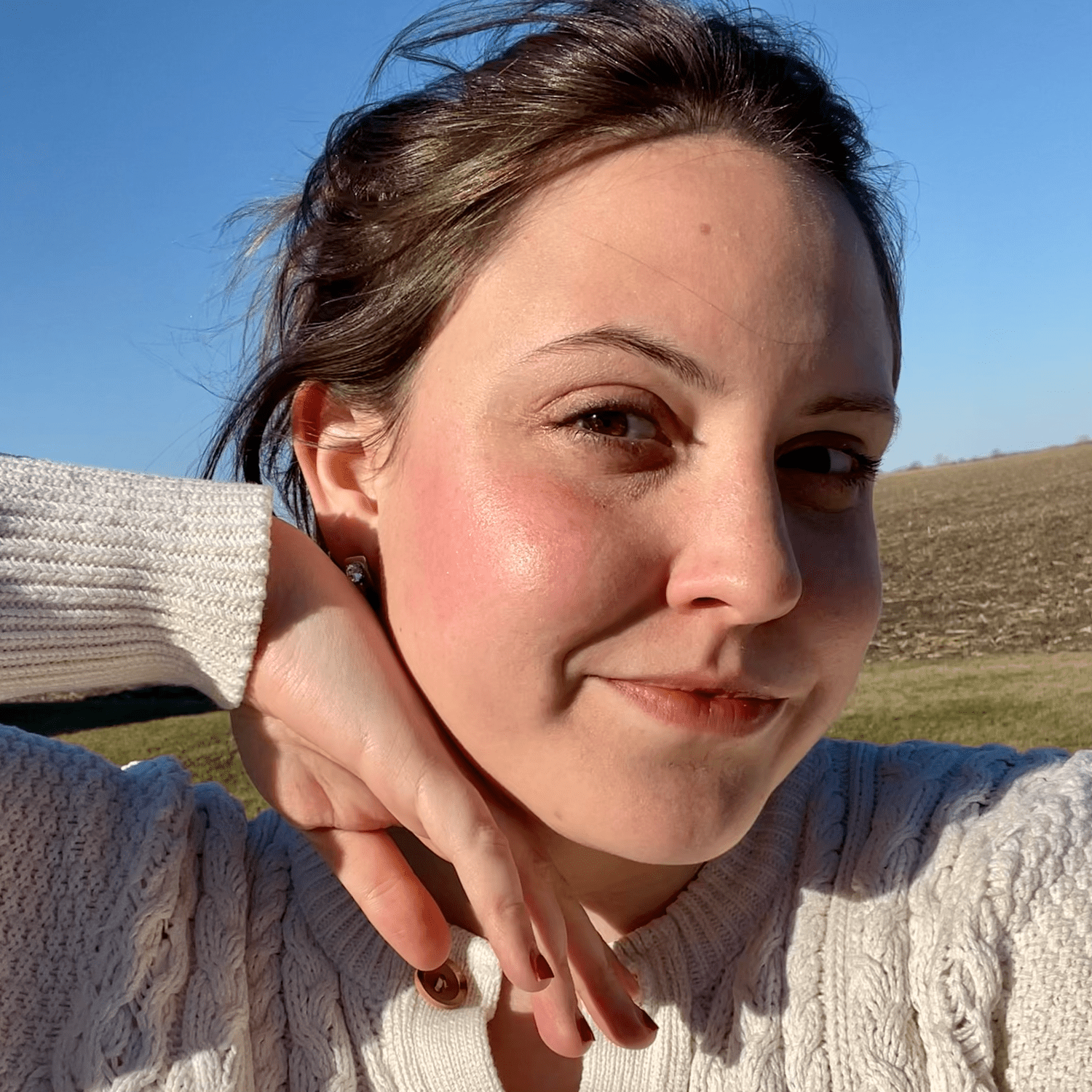
Sophia Vilensky is a Freelance Beauty Writer at Marie Claire with a beauty, wellness, and entertainment journalism portfolio that includes contributions to Byrdie, Bravo, Teen Vogue, and Us Weekly. Growing up in a family of beauticians—and through her own personal studies—she developed an in-depth understanding of aesthetics, cosmetic product formulation, and beauty treatment development and has also held roles as a senior copywriter, content strategist, and proofreader for top beauty and wellness brands. Even so, you'd be hard pressed to find her with her hair and makeup actually done. Sophia is based in Minneapolis and is a 2019 graduate of the University of Minnesota, where she majored in English and minored in cinema studies. During her time at the university, she was the Arts & Entertainment Editor for the Minnesota Daily, earning the 2019 Editor of the Year award for her work. She connected deeply with the Twin Cities arts scene, collaborating with leading beauty professionals, designers, and artists. Graduating Summa Cum Laude, her thesis—a close-reading of Vanderpump Rules—was featured on NPR. When not immersed in writing or testing new products, Sophia enjoys watching reality TV, reading, and exploring the newest woo-woo wellness trends. Keep up with her on Instagram @sophiavilensky.

